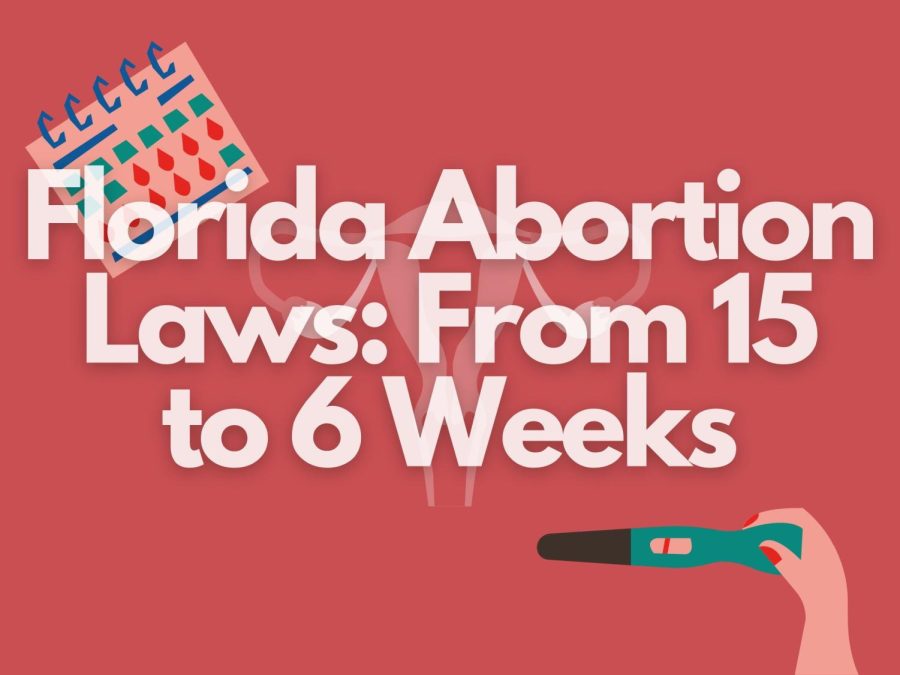Florida’s Abortion Laws Face a Drastic Change
Enacting a six week abortion ban, Florida’s abortion laws take a turn for the worse.
Almost exactly a year after Florida’s 15-week abortion ban ruling, the Senate has passed a bill that further strips women of their right to choose. As of April 3, this new bill drastically reduces the limit for legal abortions to just six weeks, which is far from enough.
This law requires two in-person doctor’s appointments to be completed before scheduling an abortion. Studies show most women learn they are pregnant in weeks four through seven of pregnancy. At best, this leaves women one to two weeks for scheduling their procedure along with two preceding doctors’ visits, and at worst in a position where it is already too late.
Additionally, this bill fails to account for women with irregular periods, who make up 14% to 25% of menstruating individuals. This leaves many women with no accurate way of detecting pregnancy; as a result, a window of merely six weeks to access reproductive care is unacceptable.
“Watching abortion laws get harder and harder to follow has honestly been such a disheartening experience. As a woman, I cannot believe it has gotten this bad. Six weeks is almost impossible to follow, so many people cannot even detect pregnancy until then, let alone have time to plan the procedure,” junior Alejandra Dellano said.
Minors especially can have a long process ahead of them when it comes to being cleared for an abortion. Because many come from religious or conservative families, their only option might be Judicial Bypass. This process gives a minor the opportunity to ask a judge to be granted the right to an abortion without involving a parent. While the process itself should take no more than four days, that time does not include how long it might take to find an attorney and make all necessary arrangements. This may leave the minor with little to no time left depending on when their pregnancy was discovered.
“A six-week cut-off time really fails to take into account the situations of pregnant people. It is not always easy to tell and even after it is not always an easy decision,” junior Gabriella Reguera said.
Moreover, it is important to recognize that even if pregnancy is detected prior to the six-week mark, accessing safe medical care is not always a timely process for low-income individuals who might be uninsured or struggling with maintaining their insurance. External factors like this are one of many making access to abortions harder than lawmakers seem to think.
“I think pushing it down to six weeks is by no means okay. Getting an abortion is a process that goes beyond deciding to get one and then just going to get it done. It is a long and arduous process. Finding out you are pregnant is difficult as is and that is just the tip of the iceberg. There is also scheduling and making the decision itself; people should be granted more time to do it all,” junior Anabelle Gonzalez said.
Family planning services should not be overlooked in any way or seen as a luxury. Laws such as these are made with little to no understanding of the complex situations of others. While some might simply not be mentally ready for children, others might be nowhere near financially ready either. There are many reasons why individuals might want to terminate a pregnancy; these reasons should all be respected. The decision to bear a child is a substantial one that should be left to pregnant women and their doctors.
Your donation will support the student journalists of Coral Gables Senior High School. Your contribution will help us cover our annual website hosting costs.

Entering her final year at Coral Gables Senior High, senior Lorena Acevedo hopes to make this her most notable year yet. As returning member of Cavsconnect,...








